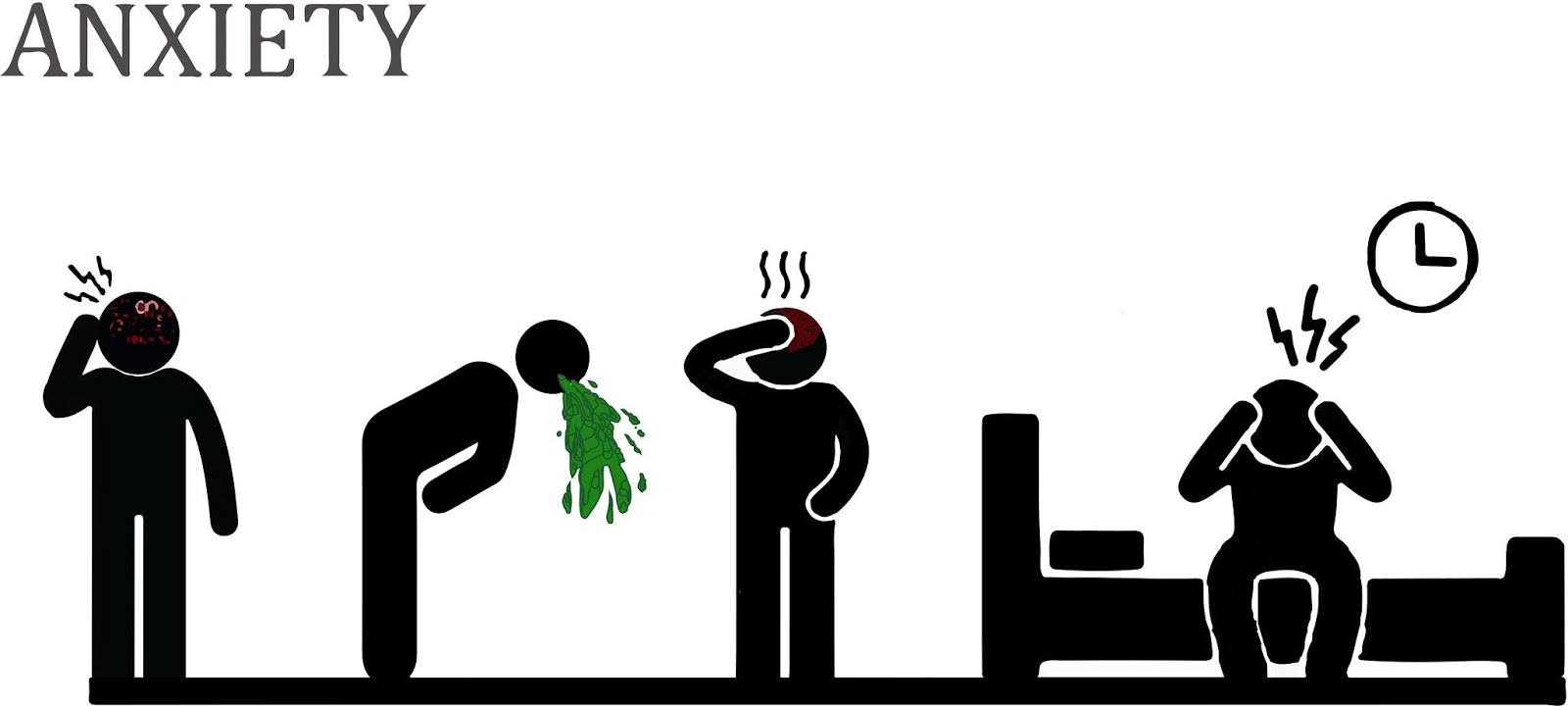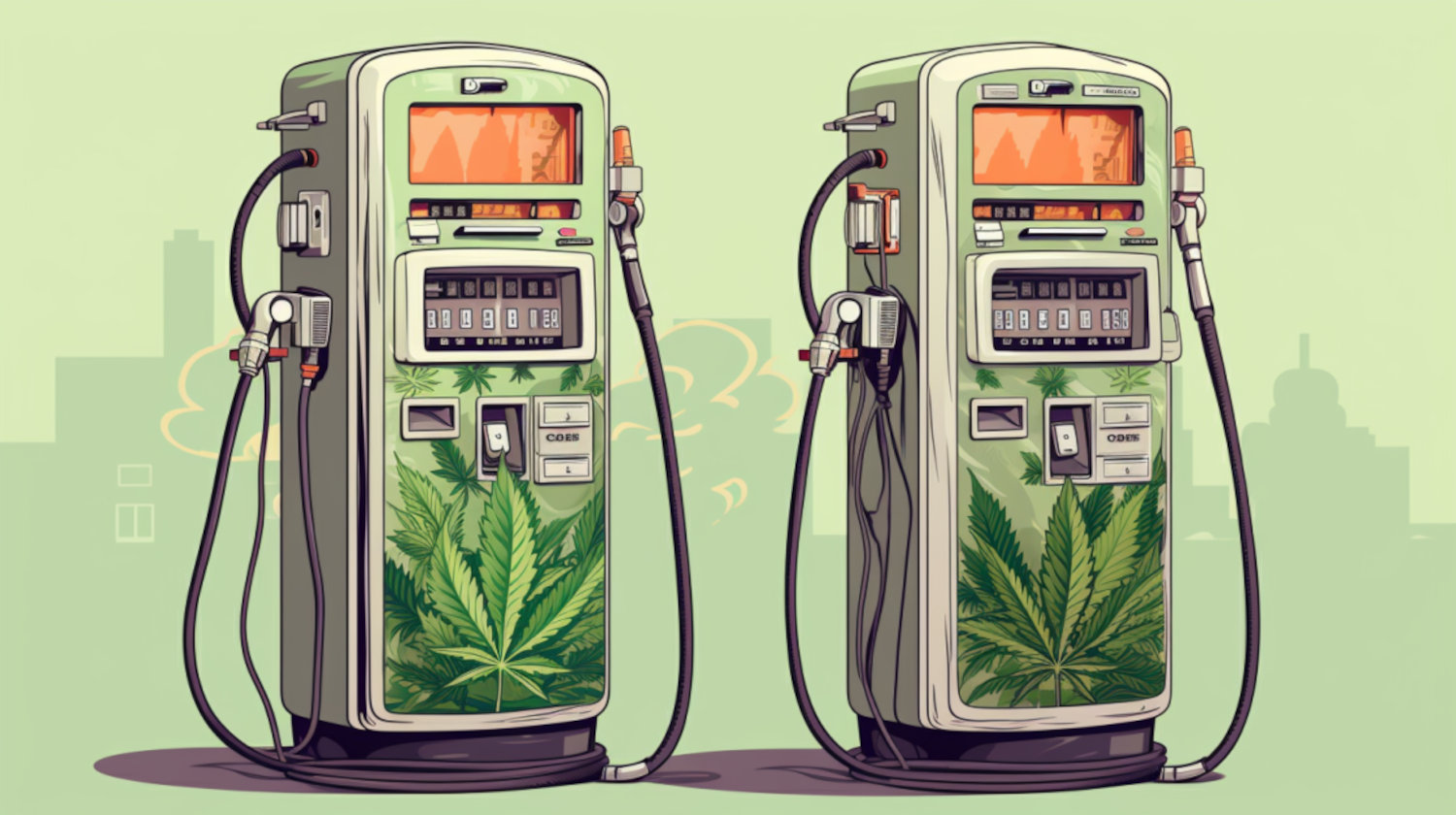In This Article
- Which Cannabinoids Help Most When Using Cannabis for Stress?
- THC for Stress
- CBD for Stress
- Patient Response
- Which Cannabinoid Concentrations and Ratios Help Most With Stress?
- How to Choose Strains for Stress Based on Cannabinoid Content
- Cannabinoid Content
- Minor Cannabinoid Content
- Lab Certification
- Consumer Reviews
- Kush
- Haze
- Diesel
- The 5 Best Strains for Stress Based on Cannabinoid Content
- Cheetah Piss
- Tropicana Cookies
- G13
- White Rhino
- Ghost Train Haze
- References
A world of cannabis strains and effects is made available thanks to a number of plant compounds, including cannabinoids. A strain's cannabinoid concentration is a critical factor in the type of experience a consumer feels when using cannabis for stress.
Individuals have explored using cannabis and specific cannabinoids for stress relief. With years of anecdotal feedback and a growing number of clinical studies, we know some great information about how cannabis and certain cannabinoids, like THC and CBD, may assist with stress relief.
Which Cannabinoids Help Most When Using Cannabis for Stress?
Many cannabinoids are showing promise in addressing stress. The primary compounds, THC and CBD, remain the most clinically studied, providing further understanding that most other cannabinoids don't have at this time.
A growing amount of clinical research has begun to verify the years of anecdotal claims supporting cannabis’ effect on stress management and relief. While additional research is required to confirm many of the areas of interest, there is some understanding of what many have long claimed.
Ongoing research into the efficacy of cannabinoids provides a wealth of valuable insights and information into what effects and benefits may be experienced when using cannabis for stress relief.
THC for Stress
Tetrahydrocannabinol (THC) is the primary intoxicating compound in the cannabis plant. It is known for delivering the effects that many call a high. THC is often associated with beneficial effects such as relaxation and stress relief. However, ongoing research suggests a more profound relationship may vary in outcomes.
A 2021 study of THC and stress called the relationship between the two “bi-directional.” Researchers suggest that while cannabis can provide immediate stress relief, it could also pose as a potential stress enhancer if used chronically. This may potentially lead to increased levels of stress and risk of developing anxiety or depression.1
A 2023 study delved into the relationship between THC and CBD, with the analysis noting that products high in THC and low in CBD may induce stress. Researchers also reported that high levels of THC can over-activate specific neural pathways in the brain, leading to increased stress and anxiety responses.2
CBD for Stress
In recent years, cannabidiol (CBD) has shown the ability to help those suffering from stress symptoms potentially. CBD produces non-intoxicating effects, meaning the high associated with THC and some other minor cannabinoids will not occur. While consumers won't feel high, they reportedly do experience many other similar outcomes when it comes to stress relief.
One 2021 study concluded that CBD significantly reduces a person's stress response. The cannabinoid's efficacy in managing stress is associated with its ability to enhance signaling in the body's endocannabinoid system (ECS). By interacting with the body's complex system of receptors, CBD plays a critical role in maintaining many crucial functions, including stress responses. It is believed that this interaction may provide long-term benefits to those dealing with stress.3
Patient Response
Cannabis is a complex plant, with patients experiencing several outcomes when consuming the same plant. Research suggests that the varied experiences are generally positive concerning stress relief.3
Anecdotal feedback and a growing number of lab analyses suggest that cannabinoids like THC, CBD, and many other cannabinoids have reduced stress, anxiety, and other symptoms in countless patients. The two primary cannabinoids offer similar stress relief results while allowing the consumer to decide if they want to experience intoxicating effects or not.
THC and CBD show great promise in managing stress for many individuals. Current research suggests that CBD may be the better option for long-term stress management, with THC potentially increasing stress and anxiety if used for stress relief for too long of a period.2,3
Which Cannabinoid Concentrations and Ratios Help Most With Stress?

The ideal cannabinoid concentration for stress release, or any other outcome, will vary based on the consumer. Various studies exploring cannabinoid ratios and their impact on stress have provided consumers with some insights and potential guidelines.
The ECS plays a critical role in regulating the body's stress responses. Several plant compounds affect this complex system of receptors, and their concentrations and ratios dictate the level of effect.
Studies suggest that a balance between THC and CBD cannabinoids is essential to reach the best possible stress relief effects without experiencing adverse outcomes, including greening out.2 To avoid such consequences, some consumers turn to microdosing, a process where small doses of THC are consumed at a time. Typically, the dose varies between 2.5mg and 5mg of THC, depending on the product and personal preference.
When considering the ideal cannabinoid concentration, remember that each person responds differently to every strain and scenario. This plethora of outcomes leaves consumers with several options to consider.
However, research has provided insights into concentration, dosage, and stress relief. Select studies have found that products low in THC and higher concentrations of CBD may be most effective for stress relief. In some studies, researchers concluded that high formulations of CBD tend to reduce anxiety. Meanwhile, high THC products can potentially increase the adverse effects.1,3
Additional analysis is required to confirm or deny the efficacy of high-CBD low-THC products and their role in stress management. Consumers also need to keep in mind that while these results may provide a baseline of understanding in the years to come, each person does respond differently to cannabis. As such, consumers should consult with a trusted medical professional to determine if cannabis may help with their stress management.
How to Choose Strains for Stress Based on Cannabinoid Content
Strain selection is crucial when it comes to cannabis and stress management. Each strain offers a variety of outcomes based on its plant profile, including its cannabinoid concentration. Knowing how a strain potentially impacts consumers is the best way to predict the outcome and how it may or may not affect someone's stress.
When assessing a cannabis strain for stress relief, consider the following:
Cannabinoid Content
Start by assessing the two primary cannabinoids in the plant, THC and CBD. While they offer some similar effects, the critical standout difference between THC and CBD allows consumers to decide if an intoxicating effect is needed to help manage their stress.
A balanced one-to-one ratio of CBD to THC has been recommended in a variety of studies and anecdotal feedback. However, keep in mind that each person responds differently to cannabis dosages and cannabinoids. This means that a different ratio may be most effective for different consumers.
Minor Cannabinoid Content
While THC and CBD often get the spotlight, hundreds of cannabinoids have been identified in cannabis. Several of these compounds are promising in producing various medical effects, including stress relief. In addition to the primary compounds, minor cannabinoids, such as CBG and CBN, have shown the potential to provide stress relief and anti-anxiety properties, which may also improve sleep quality.3
Many believe that the combination of major and minor cannabinoids, as well as other cannabis compounds, may help deliver optimal effects. Additional research is required to confirm the largely-held public opinion often called the entourage effect.
Lab Certification
A certificate of analysis (COA) from a third-party lab helps verify the compounds in a strain. It confirms that no other contaminants or unwanted elements are present in the product. Consumers can find a certificate of analysis by visiting the company's website. The product itself may also have a QR code that will be linked to the lab results.
Consumer Reviews
Lab analysis provides clinical clarity to an ongoing area of study. Still, the cannabis community has long thrived on anecdotal feedback. While far from scientific, reviews from fellow consumers continue to be one of the most effective methods of gauging what type of experience may be produced.
Though it's important to keep in mind that every person experiences cannabis differently, consumer reviews can help better understand what type of experience may occur, from its effects to flavor and more.
Strain families can also help determine its possible impact on stress. With a certain degree of shared characteristics, these strains may help relieve stress for consumers:
Kush
Noted for their high THC content, as well as the presence of other minor cannabinoids like CBD and CBG, Kush strains are often associated with delivering sedative effects while placing consumers into a state of euphoria.
Haze
Haze strains, known for their intense head highs, are regularly associated with lifting spirits and energy levels.
Diesel
Potent and robust with a gassy aroma, diesel strains are often associated with increasing energy levels that leave consumers with giggle fits and sometimes elevated states of arousal.
The 5 Best Strains for Stress Based on Cannabinoid Content

Determining the best cannabinoids and strains for stress is subjective. While some public opinion and clinical research can provide a baseline for consumers, remember that each person responds differently to the plant.
Based on user feedback, these strains may be more consistently effective in providing stress relief and helping with stress management.
Cheetah Piss
This purple strain with a high-teens THC potency tastes a lot better than its name suggests. It is known for helping consumers unwind and release any pent-up energy.
Tropicana Cookies
With a potency hovering between the low and high 20s, Tropicana Cookies contains a blend of terpenes and a high THC concentration to deliver a dose of stress relief and serenity.
G13
Featuring a blend of 20% THC and 1% CBG, G13 is often associated with providing mental and physical relief.
White Rhino
Somewhere in the middle between a low and high THC concentration, White Rhino is often linked to serene and peaceful effects that may sedate some consumers.
Ghost Train Haze
With a THC potency often around 27% and backed by small amounts of minor cannabinoids like CBD and CBG, Ghost Train Haze has been linked to relaxation and mood enhancement effects, among various other outcomes.
References
- al'Absi M, Allen AM. Impact of Acute and Chronic Cannabis Use on Stress Response Regulation: Challenging the Belief That Cannabis Is an Effective Method for Coping. Front Psychol. 2021;12:687106. Published 2021 Jul 1. doi:10.3389/fpsyg.2021.687106 ↩︎
- Haller J. Anxiety Modulation by Cannabinoids—The Role of Stress Responses and Coping. International Journal of Molecular Sciences. 2023; 24(21):15777. https://doi.org/10.3390/ijms242115777 ↩︎
- Henson JD, Vitetta L, Quezada M, Hall S. Enhancing Endocannabinoid Control of Stress with Cannabidiol. J Clin Med. 2021;10(24):5852. Published 2021 Dec 14. doi:10.3390/jcm10245852 ↩︎
The information in this article and any included images or charts are for educational purposes only. This information is neither a substitute for, nor does it replace, professional legal advice or medical advice, diagnosis, or treatment. If you have any concerns or questions about laws, regulations, or your health, you should always consult with an attorney, physician or other licensed professional.




